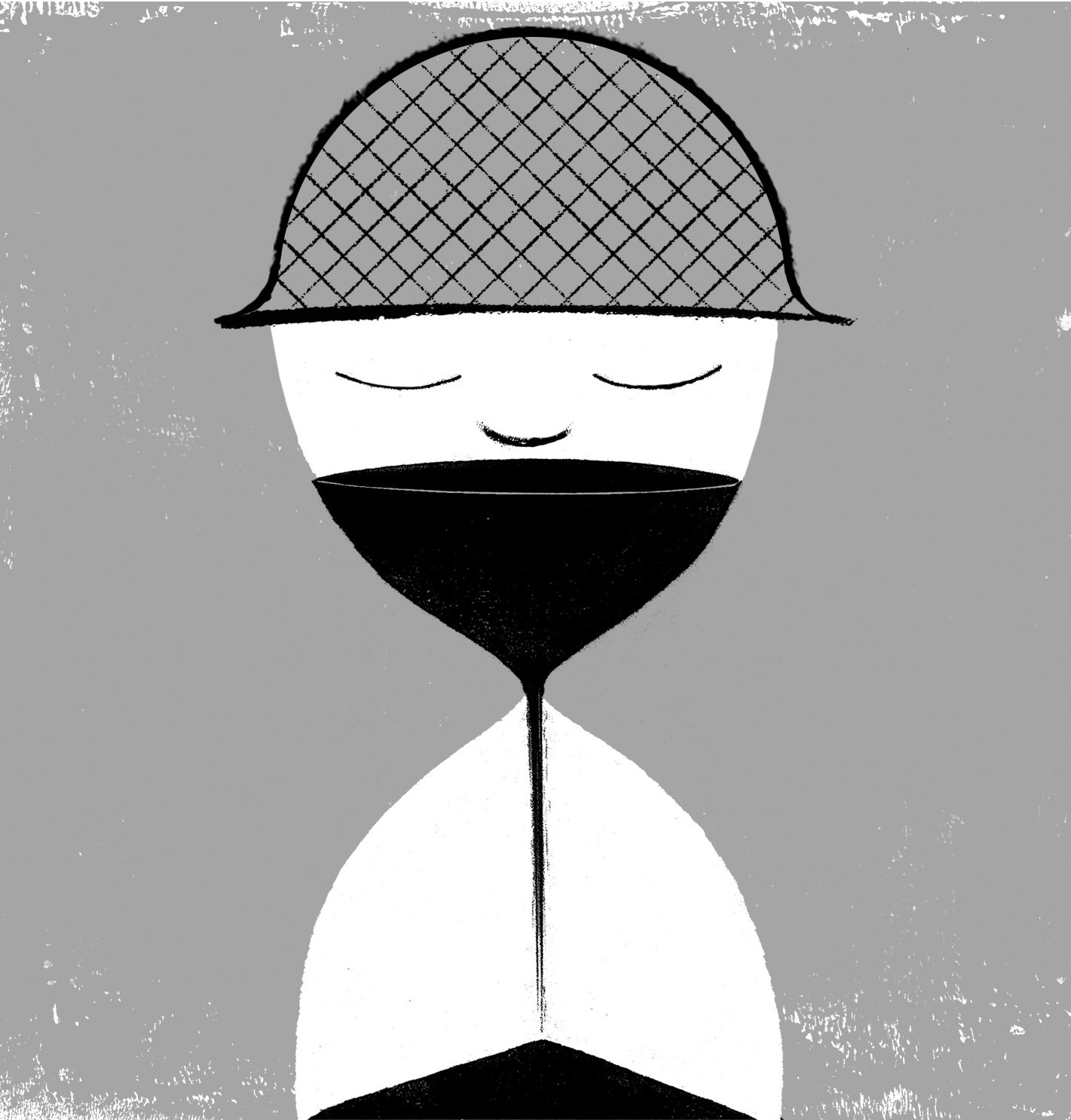World War I, the so-called “war to end all wars,” concluded in November 1918. The crucial question of the day changed abruptly—from how to wage war to how to make peace. Could the Allied powers prevent another war on the European continent? How would individual nations rebuild their economies? And who was going to pay for all this plus damages from the war?
World War I lasted nearly four-and-a-half years, having broken out in July 1914. It resulted in 40 million casualties (both civilian and military); of these, around half were fatalities. The expense of actually fighting the war was a bit over $200 billion—around $4 trillion in today’s dollars. There was also massive property damage, and wounded soldiers would need care for many decades.
In January 1919, heads of state from the Allied nations arrived in Paris to hammer out peace details. A treaty was negotiated during the first half of 1919 and then signed at Versailles on June 28. One hundred years later, we have arrived at a moment when the world faces challenges not dissimilar to those of the post–World War I era. For both historical and contemporary reasons, it will be useful in this anniversary year to understand the impact of this treaty or, as John Maynard Keynes put it in the title of his book on the Paris peace conference, The Economic Consequences of the Peace.
Keynes was raised in a well-to-do British household, where economics and politics were frequent topics of conversation. His father was a Cambridge economist; at one point his mother was mayor of Cambridge. He studied at King’s College, Cambridge University, with prominent figures in several disciplines—G.E. Moore in Philosophy, Alfred North Whitehead in Mathematics, and Alfred Marshall in Economics.
Keynes worked for the U.K. Treasury during World War I. His main responsibility was obtaining external finance (loans from the United States and elsewhere) to support the war effort. Britain needed arms, equipment, and food. Understandably, U.S. companies wanted payment in U.S. dollars. Keynes was responsible for borrowing these dollars (and other foreign currencies) as well as negotiating the terms of the foreign loans. Keynes was sent to Paris because he was the British expert on war debts.
Much was at stake, both economically and politically. One faction in the U.K. wanted Germany to help repay British loans. David Lloyd George became British prime minister after promising to make Germany “pay for the war,” an ill-considered pledge with echoes in our present-day debate over security and immigration. Loans from the United States had to be repaid, creating a burden on England unless someone else could be found to help out. Meanwhile, the French had a long history of warfare with Germany and wanted to cripple the German military machine. Forces seemed aligned to make Germany pay dearly. As the old saying goes, “To the victor goes the spoils.”
The peace negotiations alarmed Keynes so much that he resigned in protest and left Paris. As a form of catharsis he wrote The Economic Consequences of the Peace. It detailed the problems he saw as a result of the treaty, and it immediately made Keynes famous. Furthermore, it contains lessons for today, as the world seems intent on repeating mistakes made in Paris 100 years ago.
Keynes begins by setting the stage with scathing portraits of leaders from the major victorious nations.
Of French President Georges Clemenceau, Keynes remarked “he had one illusion—France; and one disillusion—mankind.” Restoring the glory of France was all that mattered for Clemenceau. He felt the Deutschlanders only understood intimidation, and he sought to extract as much as possible from them.
U.S. President Woodrow Wilson was regarded as a hero when the peace talks began because he provided dollars to support the war effort. Wilson was inclined to be lenient toward Germany for both moral and practical reasons but then caved under French and British pressure to squeeze the defeated nation. This disappointed Keynes. He felt that Wilson, having spent most of his adult life in academia, lacked the practical wisdom and forceful personality necessary to counter the demands of Britain and France.
Finally, Lloyd George was the lynchpin. Keynes praised him for not wanting to expropriate the entire Germany military machine and for befriending Wilson so that he might be a potential ally for a more moderate position on German reparations. But Lloyd George felt bound by his campaign promises. Keynes later excoriated him for lacking backbone and for failing to stand up to France.
These profiles in ineptitude were a prelude to Keynes’s explanation for why the peace accord was so dangerous. Here economics took center stage.
Keynes worried that the reparations demanded of Germany were far too harsh. He made detailed computations showing that Germany could not possibly make such payments. He argued that, if forced to make them, Germany would have to sell goods cheaply in world markets. Keynes feared this would hurt the economies of other developed nations—especially France, the U.K. and the United States. In these three nations, firms would have to compete against very inexpensive German goods. Unable to do so, they would lose sales and be forced to lay off workers.
In light of this, a demand for large reparations from Germany was not in the economic interest of the parties covered by the Paris treaty. Germany would be squeezed economically; then, in trying to meet the treaty’s demands, it would generate rising unemployment in other nations.
Keynes developed his own alternative plan—he called for smaller reparations and stipulated that the Allies borrow money to repay their war debts (because writing down the debt would not fly politically in the United States). He then explained how this would benefit the global economy. It would promote free trade around the world, helping all nations grow. No nation would be burdened with excessive debt, enabling them to spend money on rebuilding. And it would force the wealthiest nation (the United States) to help with the reconstruction effort (by lending money to pay off past war debts). But it would not be until the end of World War II, with the Marshall Plan, that the United States would help revive a war-torn Europe.
In addition to the economic consequences of the peace, Keynes feared its political consequences. With living standards falling sharply in Germany, and with foreign nations clearly responsible for this, Germans would become increasingly disgruntled. To the adage about spoils going to the winner, we might add that the loser boils with anger. This great animosity, Keynes feared, would lead to the resurgence of a bellicose Germany.
Overall, Keynes saw the future clearly—first a short economic boom in the Allied nations (the “Roaring ’20s”) driven by the rebuilding of Europe, followed by declining income levels and rising militancy in Germany.
Though clearly not learned, three critical lessons from the post–World War I era stand out. These are also instances where the mistakes made in Paris and enshrined in the Treaty of Versailles are being repeated today, with potentially disastrous consequences.
First, the economic lessons. Keynes warned of severe economic consequences from forcing austerity on other nations. The victorious nations in Paris forced austerity on Germany. Germans had to tighten their belts and work for less, since most of what they produced would have to be sold abroad to generate the foreign currency needed to pay reparations. This left few goods at home to rebuild or to sustain the living standard of average German families.
In the past decade the actors have changed roles, but the plot remains the same. Instead of suffering the fate of austerity, Germany has pushed austerity on other European nations through several international organizations where it possesses a great deal of clout. The International Monetary Fund and European Central Bank are responsible for making loans to nations in need. Germany has demanded that, in return for borrowing euros, these countries cut government spending and/or raise taxes (i.e., employ austerity policies) in order to reduce their government budget deficits and national debt.
Austerity counters the positive effects of borrowing more euros. This is why Greece and Spain have suffered 20 percent unemployment rates during the 2010s; even Italy and France experienced near-double-digit unemployment over the past decade. As these nations struggle, they buy fewer goods and services from other nations. The entire world economy stagnates.
A second lesson is political. Keynes was convinced that Germany could not pay what was asked of it and feared the political consequences of large reparations—the rise of German militancy. The history of Europe, after all, was a history of war. Rather than solving this problem, the peace treaty made another war more likely. Only with the Schuman Plan following World War II, which made Germany and France economically interdependent (see “Trump’s Trade War: An Unwinnable Folly” in the September 2018 Washington Spectator), was a viable strategy developed to keep Europe from another world war.
But things have changed in recent years. Workers throughout the world have become increasingly angry. They are working harder only to see their living standard decline in absolute terms and drop sharply in relative terms, while more and more money goes to the very rich. Facing downward mobility, they seek scapegoats. The British blame the European Union for their problems; Americans blame cheap Chinese goods and foreigners coming to take their jobs. Brexit, the election of Donald Trump, and the rise of far-right politicians in Europe (such as Marine Le Pen in France, Victor Orban in Hungary and Matteo Salvini in Italy) all signify a rising xenophobia that makes the world a more dangerous place.
Third, there are policy lessons. Keynes perceived that macroeconomic problems would be unleashed by the bad policies contained in the Paris peace treaty. He also understood that developed nations were interdependent: one country’s exports were another country’s imports, and nations would benefit from trading with each other.
Ignoring this lesson, and believing that all nations can thrive by being independent, the U.S. Congress passed the 1930 Tariff Act, commonly known as the Smoot-Hawley Act. It imposed high taxes on foreign goods coming into the United States; other nations, naturally, reciprocated. As a result, an economic slump started by the October 1929 stock market crash became a Great Depression that was ended only by the stimulus of public investment in planning and preparations for World War II.
Today we see President Trump proclaiming himself “Tariff Man” and unilaterally raising import taxes under the pretext of national security. As occurred in the 1930s, other nations have responded in kind. The economic consequences of these actions have been less foreign trade and slower economic growth. Most economic forecasts point to even slower growth in the future due to the Trump tariffs and worldwide reciprocation.
A few further comparisons between 1919 and today are worth noting. The U.K. and the United States have employed failed post–WWI policies, causing considerable economic and political damage. Unlike what has transpired in continental Europe, these are unforced policy errors.
The U.K. did not need outside powers to force austerity on it. It did the dirty deed itself after the Great Recession, making a political decision to reduce budget deficits despite an economy with considerable economic slack. The Conservative government of former Prime Minister David Cameron cut spending sharply, especially for health care and education, and increased taxes (especially the regressive value-added tax, the British equivalent of the U.S. sales tax).
Austerity has led to the rise of homelessness and begging in the street. Another result is the rapid growth of food banks throughout Britain. The consequences of austerity have not just been economic. There have also been grave political consequences—the Brexit referendum of 2016 and the struggles of Prime Minister Theresa May’s government to deal with this defining challenge.
And the United States has made two huge unforced errors in this century.
The first involved bankruptcy reform. The Bankruptcy Abuse Prevention and Consumer Protection Act of 2005 could have been titled the Bankruptcy Prevention and Consumer Abuse Act. This legislation made it harder and more expensive for consumers to do what any business firm can do—wipe their slate clean and eliminate their debt by filing for bankruptcy. Instead, as in Germany in the 1920s, households have been forced to tighten their belts. Meanwhile creditors can hound indebted households. Perversely, once financial institutions became confident that consumers would be forced to repay their loans, they went on a mortgage and credit card lending binge to struggling households. We all know how this turned out.
A second unforced error was the 2017 “tax reform.” This legislation did nothing to help average Americans while rewarding corporations and their wealthy owners. It also busted the budget. As annual budget deficits rise towards $1 trillion and beyond, Republicans propose austerity—cutting government spending, especially social insurance programs that benefit most U.S. families. As in Paris in 1919, those with power impose great costs on those least able to bear their burden.
What happens when the next recession hits (which most economists think is likely by 2020)? The U.S. budget deficit will soar to nearly $2 trillion (due to lower tax revenues and more social spending stemming from the recession), and we will likely have neither the economic nor the political wherewithal to enact a large spending program to end the recession. One can only shudder at the political consequences of this convergence.
Keynes ended his book on the Paris peace accord with barely a scintilla of hope for the future. “We may still have time to reconsider our courses and to view the world with new eyes,” he wrote. “The assertion of truth, the unveiling of illusion, the dissipation of hate, the enlargement and instruction of men’s hearts and minds, must be the means.” These words, as well as the lessons from Paris, bear remembering.
Steven Pressman is professor of economics at Colorado State University, author of Fifty Major Economists, 3rd edition (Routledge, 2013), and president-elect of the Association for Social Economics.





Excellent synopsis of the aftereffects of the Treaty of Versailles in re. economics and trading relations between the belligerents and the associated debts. However, his direct correlation with the present situation with Germany trying to enforce austerity within the EU is not an exact fit. The forced “belt tightening” that Germany is pushing may in the short run be difficult, but, as with Germany post WW1, far too much indebtedness is equally poisonous. Look at the hyperinflation that Germany suffered as a consequence.
However, I do not agree with all the discussion relating to tariffs. As in undergraduate studying economics, it was as article of faith that the Smoot-Hawley Tariffs were the great trigger for the Great Depression. This Killed Free Trade! I seem to have picked up that now this is not so definitively considered to be the basis. I agree.
The biggest deal was the massive amount of debt that had been accrued with the phony trading on the US stock exchange and elsewhere. Everyone was RICH until their margin was called! The whole scheme was based on borrowed (indebted) money. Perhaps the biggest Ponzi scheme of all time?
We have experienced the same thing in the Crash of 2007-8. Again with phony housing appraisals, the false belief that your home’s value can only go up, so BORROW, BORROW, BORROW! This is the psychology of the Roaring Twenties. Not Smoot-Hawley 1931.
And as to indebtedness, look at the student debt and credit card debts! This will cripple their purchasing powers for half their lifetimes.
The question of tariffs is a whole other issue. The Germans understood their significance when the began to establish “Zollvein” or “tariff unions” in Germany, in particular versus England. These ultimately served as the structures for the ultimate unification of Germany.
The important consideration that must be taken is, just on whom and how how you are placing your tariffs.
So maybe the Germans have it right.